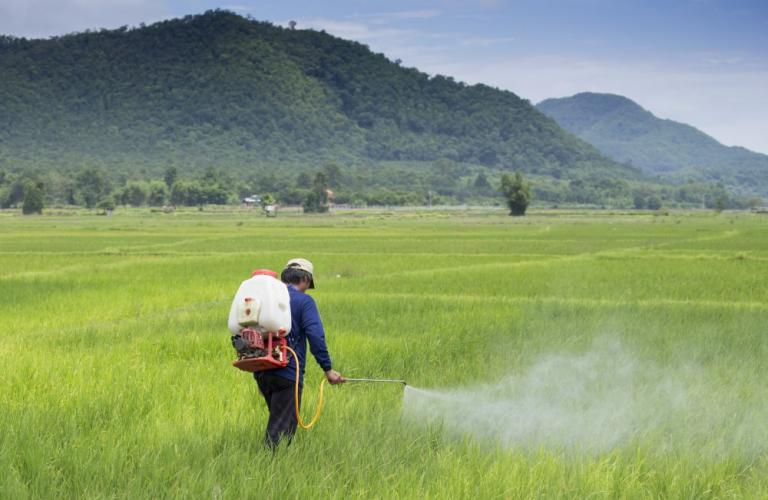Innovative Approaches To Agrochemical Use Reduction

In today's fast-paced world, the field of agrochemicals is gaining immense importance. With the ever-increasing demand for food production to meet the needs of a growing population, agrochemicals play a crucial role in enhancing crop yields and ensuring food security. In this article, we will explore the significance of agrochemicals and delve into various aspects related to their usage and impact on agriculture.
Agrochemicals, also known as agricultural chemicals, are chemical substances used in agriculture to enhance crop productivity and protect crops from pests, diseases, and weeds. They include fertilizers, pesticides, herbicides, insecticides, and fungicides. These chemicals help farmers optimize crop growth, manage pests and diseases, and improve overall agricultural practices.
What is the importance of agrochemicals in modern agriculture?
Agrochemicals play a vital role in modern agriculture by providing the necessary tools for farmers to maximize crop yields and maintain the quality of agricultural produce. They help in minimizing crop losses due to pests, diseases, and weeds, ensuring higher food production.
Ideas for using agrochemicals effectively:
- Implement integrated pest management practices: It is essential to adopt integrated pest management (IPM) practices that combine the use of agrochemicals with biological and cultural control methods. This approach helps in reducing excessive reliance on chemical pesticides while maintaining sustainable agriculture.
- Proper application techniques: Farmers should follow recommended application techniques and dosage guidelines while using agrochemicals. This ensures efficient utilization of the chemicals and minimizes the risk of environmental pollution.
- Regular monitoring of pest and disease populations: It is important to regularly monitor pest and disease populations in the field to detect any early signs of infestation. Timely intervention with agrochemicals can prevent the escalation of pest and disease problems.
- Safe handling and storage: Farmers and agricultural workers should follow proper safety precautions while handling and storing agrochemicals. This includes using protective equipment, storing chemicals in designated areas, and ensuring they are kept away from children and animals.
- Educating farmers about appropriate agrochemical use: Extension services and agricultural organizations should actively educate farmers about the appropriate use of agrochemicals, including dosage, timing, and potential environmental impacts. This can help in minimizing the misuse and overuse of agrochemicals.
Recommendations for sustainable use of agrochemicals:
- Promote organic farming practices: Encouraging organic farming practices can help reduce the reliance on chemical inputs. Organic farming promotes the use of natural alternatives to synthetic agrochemicals, thus reducing the environmental impact of agriculture.
- Invest in research and development: Governments and agricultural organizations should invest in research and development of new agrochemicals that are more eco-friendly, effective, and have minimal adverse effects on the environment and human health.
- Regulate agrochemical production and usage: Strict regulations should be in place to ensure the safe and responsible production, distribution, and usage of agrochemicals. This includes proper labeling, control of counterfeit products, and monitoring of residues in produce.
- Promote sustainable farming practices: Sustainable farming practices, such as crop rotation, use of cover crops, and integrated crop-livestock systems, can help reduce the reliance on agrochemicals. These practices contribute to the overall health of agricultural ecosystems and reduce the need for chemical inputs.
Listicle of benefits of agrochemicals in agriculture:
- Increased crop yields: Agrochemicals help in boosting crop productivity and ensuring higher yields.
- Improved crop quality: The use of agrochemicals ensures better quality agriculture produce with reduced pest damage and diseases.
- Efficient pest and weed control: Agrochemicals effectively manage pests, diseases, and weed infestations, reducing crop losses and enhancing agricultural productivity.
- Cost-effective: Agrochemicals provide a cost-effective solution for farmers to protect their crops and maximize their overall yields.
- Food security: Agrochemicals play a critical role in ensuring food security by enabling farmers to produce sufficient quantities of food to meet the growing demands of the population.
Question & Answer:
Q: Are agrochemicals harmful to human health?
A: When used properly following recommended guidelines, agrochemicals pose minimal risks to human health. However, excessive and improper use of agrochemicals can lead to health hazards. It is important to handle and use these chemicals responsibly.
Q: Do agrochemicals harm the environment?
A: The environmental impact of agrochemicals depends on their usage and management. With appropriate usage, including adherence to dosage instructions and application techniques, the risk of environmental pollution can be minimized.
Summary of the importance of agrochemicals:
Agrochemicals play a crucial role in modern agriculture by enhancing crop yields, managing pests and diseases, and ensuring food security. However, their usage should be sustainable, taking into account environmental and health concerns. By adopting recommended practices and promoting responsible use, farmers can maximize the benefits of agrochemicals while minimizing their potential risks. It is essential to strike a balance between agricultural productivity and environmental sustainability to ensure a secure and sustainable future for agriculture.
In conclusion, agrochemicals have revolutionized the field of agriculture by providing effective tools for crop protection and productivity enhancement. However, their usage should be carried out responsibly, considering the long-term impacts on human health and the environment. By promoting sustainable practices and investing in research and development, we can optimize the benefits of agrochemicals while minimizing their potential drawbacks. It is essential for farmers, agricultural organizations, and policymakers to work together towards ensuring a sustainable and secure agricultural future.
Post a Comment for "Innovative Approaches To Agrochemical Use Reduction"